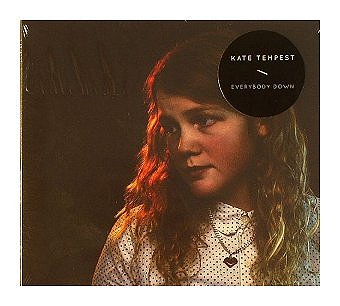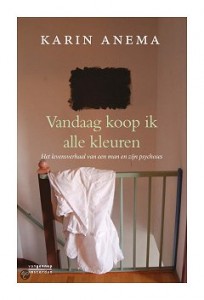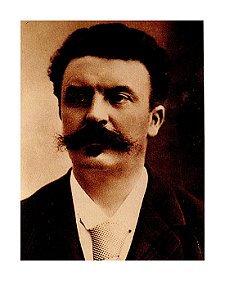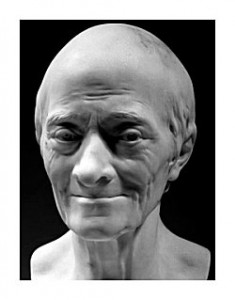Fleurs du Mal Magazine


Or see the index

The Sorrows of Young Werther (45) by J.W. von Goethe
SEPTEMBER 15.
It makes me wretched, Wilhelm, to think that there should be men
incapable of appreciating the few things which possess a real value in
life. You remember the walnut trees at S--, under which I used to sit
with Charlotte, during my visits to the worthy old vicar. Those glorious
trees, the very sight of which has so often filled my heart with
joy, how they adorned and refreshed the parsonage yard, with their
wide-extended branches! and how pleasing was our remembrance of the
good old pastor, by whose hands they were planted so many years ago:
The schoolmaster has frequently mentioned his name. He had it from his
grandfather. He must have been a most excellent man; and, under the
shade of those old trees, his memory was ever venerated by me. The
schoolmaster informed us yesterday, with tears in his eyes, that those
trees had been felled. Yes, cut to the ground! I could, in my wrath,
have slain the monster who struck the first stroke. And I must endure
this!--I, who, if I had had two such trees in my own court, and one had
died from old age, should have wept with real affliction. But there is
some comfort left, such a thing is sentiment, the whole village murmurs
at the misfortune; and I hope the vicar's wife will soon find, by the
cessation of the villagers' presents, how much she has wounded the
feelings of the neighborhhood. It was she who did it, the wife of the
present incumbent (our good old man is dead), a tall, sickly creature
who is so far right to disregard the world, as the world totally
disregards her. The silly being affects to be learned, pretends to
examine the canonical books, lends her aid toward the new-fashioned
reformation of Christendom, moral and critical, and shrugs up her
shoulders at the mention of Lavater's enthusiasm. Her health is
destroyed, on account of which she is prevented from having any
enjoyment here below. Only such a creature could have cut down my walnut
trees! I can never pardon it. Hear her reasons. The falling leaves made
the court wet and dirty; the branches obstructed the light; boys threw
stones at the nuts when they were ripe, and the noise affected her
nerves; and disturbed her profound meditations, when she was weighing
the difficulties of Kennicot, Semler, and Michaelis. Finding that all
the parish, particularly the old people, were displeased, I asked "why
they allowed it?" "Ah, sir!" they replied, "when the steward orders,
what can we poor peasants do?" But one thing has happened well. The
steward and the vicar (who, for once, thought to reap some advantage
from the caprices of his wife) intended to divide the trees between
them. The revenue-office, being informed of it, revived an old claim to
the ground where the trees had stood, and sold them to the best bidder.
There they still lie on the ground. If I were the sovereign, I should
know how to deal with them all, vicar, steward, and revenue-office.
Sovereign, did I say? I should, in that case, care little about the
trees that grew in the country.
The Sorrows of Young Werther (Die Leiden des jungen Werther) by J.W. von Goethe. Translated by R.D. Boylan.
To be continued
fleursdumal.nl magazine
More in: -Die Leiden des jungen Werther, Goethe, Johann Wolfgang von

Kate Tempest
new album
Everybody
Down
There’s a
strong, vibrant
formal tradition
in hip hop:
the story rhyme
Rather than the bragging and boasting of many raps, in a story rhyme the MC presents a narrative – a street update of Ovid or Homer if you want to get hifalutin about it. Traced back by some to “The Message” by Melle Mel, few would dispute that it reached some sort of a peak with Slick Rick’s first album, and was carried forward by the likes of Biggie and Eminem. It also had a profound influence on rap in the UK, with artists like Roots Manuva using the form to represent themselves and their city in a myriad of new ways.
Kate Tempest is best known as a poet, perhaps a performance poet or a spoken word artist. She has a novel coming out next year with Bloomsbury. But ask Kate what she is and she’s more likely to say she’s a rapper who writes. That’s her first love. Listen to her voice, her cadences, the accent, and you’ll hear more of Skinnyman than Seamus Heaney, a veteran of Deal Real’s legendary Friday night rap battles but also someone at home doing a book reading at Foyles.
Kate Tempest understands the story rhyme, loves it. Which is why Everybody Down is something like a “novel rhyme” – twelve ‘chapters’ telling one long, complex story, a unique, one-off project, almost unique in the history of the form.
Dan Carey aka Mr Dan is one of the UK’s best known and most highly-rated producers. He’s worked with or remixed Bat For Lashes, Toy, MIA, Chairlift and Hot Chip (and just about everyone in between). When the two met, Carey invited Tempest to come through to his South London studio to muck about on a track or two. In a burst of intense creativity, they put down the whole twelve track album in a fortnight having spent almost a year developing the characters and story.
The result is a revelation. Tempest takes the tropes of the hip hop story – drugs, money, gangsters – and brings them to life in a whole new way, a London way, but also a completely personal way, where she inhabits the different characters and shows the boredom and fear in their lives rather than some faked glamour, shows more than anything their need for love.
Carey, meanwhile, sculpts soundscapes that pay tribute to the roots of hip hop while melding into the themes Tempest addresses, tough and gritty but intensely musical, the sound of a wet winter’s night out in London. He even got US singer-songwriter Willy Mason to contribute a chorus! In the end we get an audio story Dickens might have tried to write, one which is, in Tempest’s words, quite simply about “loving more.”
Kate Tempest has released records on Greco-Roman and Speedy Wunderground and for a long time fronted the band Sound Of Rum (Sunday Best). She won the Ted Hughes Poetry Prize for her play “Brand New Ancients” , which led The Guardian to describe her as “one of the brightest talents around.” Her forthcoming novel for Bloomsbury features the characters and the world built in Everybody Down, with a chapter correlating to each track.
But it’s here on this stunning, sustained piece of work, where each track works on it own, that music fans will hear beyond doubt just what a talent she is.

Kate Tempest started out when she was 16, rapping at strangers on night busses and pestering mc’s to let her on the mic at raves. Ten years later she is a published playwright, novelist, poet and respected recording artist. Her work includes Balance, her first album with band Sound of Rum; Everything Speaks in its Own Way her first collection of poems, the critically acclaimed plays Wasted, Glasshouse and Hopelessly Devoted. Brand New Ancients, her self-performed epic poem to a live score, won the Ted Hughes prize 2013 and the Herald Angel at Edinburgh Fringe.It has sold out tours in the UK and New York and is published by Picador. Her second collection of poetry, Hold Your Own, will be published by Picador on October 2014. Her debut novel, The Bricks That Built The Houses, sold in a highly competitive auction to Bloomsbury and will be published in territories including the UK, US, France, Holland and Brazil in Spring 2015. Excitingly, each track on the record correlates with a chapter in the novel, in a groundbreaking cross-genre experience.
Her single Our Town, with producers letthemusicplay was recently released on Greco-Roman records. Kate has featured on songs with Sinead O Connor, Bastille, the King Blues, Damien Dempsey and Landslide. She has toured extensively, supporting Billy Bragg on his UK tour, as well as supporting Scroobius Pip, Femi Kuti, Saul Williams and John Cooper Clarke. She is 2 x slam winner at the prestigious Nu-Yorican poetry cafe in New York and has played all the major UK and European music festivals either solo or with Sound of Rum. She’s headlined Latitude festival and has been featured on the BBC’s Glastonbury highlights, Channel 4, BBC Radio 1,4 and 6, as well as XFM and the Charlie Rose Show (Bloomberg) in the US.
Kate’s new album Everybody Down is released in May 2014 on Big Dada records. It was produced by Dan Carey aka Mr Dan who is one of the UK’s best known and most highly-rated producers. When the two met, Carey invited Tempest to come through to his South London studio to muck about on a track or two. In a burst of intense creativity, they put down the whole twelve track album in a fortnight having spent almost a year developing the characters and story. Kate is currently working on a new collection of poems, (to be published by Picador in 2014).
fleursdumal.nl magazine
More in: Archive S-T, Art & Literature News, Kate/Kae Tempest, MUSIC, Poetry Slam, Tempest, Kate/Kae

The Sorrows of Young Werther (44) by J.W. von Goethe
SEPTEMBER 5.
Charlotte had written a letter to her husband in the country, where he
was detained by business. It commenced, “My dearest love, return as
soon as possible: I await you with a thousand raptures.” A friend who
arrived, brought word, that, for certain reasons, he could not return
immediately. Charlotte’s letter was not forwarded, and the same evening
it fell into my hands. I read it, and smiled. She asked the reason.
“What a heavenly treasure is imagination:” I exclaimed; “I fancied for a
moment that this was written to me.” She paused, and seemed displeased.
I was silent.
SEPTEMBER 6.
It cost me much to part with the blue coat which I wore the first time I
danced with Charlotte. But I could not possibly wear it any longer.
But I have ordered a new one, precisely similar, even to the collar and
sleeves, as well as a new waistcoat and pantaloons.
But it does not produce the same effect upon me. I know not how it is,
but I hope in time I shall like it better.
SEPTEMBER 12.
She has been absent for some days. She went to meet Albert. To-day
I visited her: she rose to receive me, and I kissed her hand most
tenderly.
A canary at the moment flew from a mirror, and settled upon her
shoulder. “Here is a new friend,” she observed, while she made him perch
upon her hand: “he is a present for the children. What a dear he is!
Look at him! When I feed him, he flutters with his wings, and pecks so
nicely. He kisses me, too, only look!”
She held the bird to her mouth; and he pressed her sweet lips with
so much fervour that he seemed to feel the excess of bliss which he
enjoyed.
“He shall kiss you too,” she added; and then she held the bird toward
me. His little beak moved from her mouth to mine, and the delightful
sensation seemed like the forerunner of the sweetest bliss.
“A kiss,” I observed, “does not seem to satisfy him: he wishes for food,
and seems disappointed by these unsatisfactory endearments.”
“But he eats out of my mouth,” she continued, and extended her lips to
him containing seed; and she smiled with all the charm of a being who
has allowed an innocent participation of her love.
I turned my face away. She should not act thus. She ought not to excite
my imagination with such displays of heavenly innocence and happiness,
nor awaken my heart from its slumbers, in which it dreams of the
worthlessness of life! And why not? Because she knows how much I love
her.
The Sorrows of Young Werther (Die Leiden des jungen Werther) by J.W. von Goethe. Translated by R.D. Boylan.
To be continued
fleursdumal.nl magazine
More in: -Die Leiden des jungen Werther, Goethe, Johann Wolfgang von

Voltaire
(1694-1778)
A Mme Lullin
Hé quoi ! vous êtes étonnée
Qu’au bout de quatre-vingts hivers,
Ma Muse faible et surannée
Puisse encor fredonner des vers ?
Quelquefois un peu de verdure
Rit sous les glaçons de nos champs ;
Elle console la nature,
Mais elle sèche en peu de temps.
Un oiseau peut se faire entendre
Après la saison des beaux jours ;
Mais sa voix n’a plus rien de tendre,
Il ne chante plus ses amours.
Ainsi je touche encor ma lyre
Qui n’obéit plus à mes doigts ;
Ainsi j’essaie encor ma voix
Au moment même qu’elle expire.
“Je veux dans mes derniers adieux,
Disait Tibulle à son amante,
Attacher mes yeux sur tes yeux,
Te presser de ma main mourante.”
Mais quand on sent qu’on va passer,
Quand l’âme fuit avec la vie,
A-t-on des yeux pour voir Délie,
Et des mains pour la caresser ?
Dans ce moment chacun oublie
Tout ce qu’il a fait en santé.
Quel mortel s’est jamais flatté
D’un rendez-vous à l’agonie ?
Délie elle-même, à son tour,
S’en va dans la nuit éternelle,
En oubliant qu’elle fut belle,
Et qu’elle a vécu pour l’amour.
Nous naissons, nous vivons, bergère,
Nous mourons sans savoir comment ;
Chacun est parti du néant :
Où va-t-il ?… Dieu le sait, ma chère.
Voltaire poetry
fleursdumal.nl magazine
More in: Archive U-V, Voltaire

Nicole Montagne
& Karin Anema
op zondag 29 juni 2014
in VPRO Boeken
11.20 uur Nederland 1
Nicole Montagne – Makelaar in Pruisen
Nicole Montagne, grafica en schrijfster, observeert de wereld in ‘Een makelaar in Pruisen’ met een prikkelende opmerkzaamheid.
Karin Anema – Vandaag koop ik alle kleuren
Ook te gast is reisboekenschrijfster Karin Anema, die dit keer een reis maakte naar het innerlijk van een man met een psychiatrisch verleden en de diagnose schizofrenie.
fleursdumal.nl magazine
More in: - Book News, Art & Literature News

Guy de Maupassant
(1850-1893)
DERNIÈRE SOIRÉE PASSÉE AVEC MA MAÎTRESSE
Il fallait la quitter, et pour ne plus me voir
Elle partait, mon Dieu, c’était le dernier soir.
Elle me laissait seul ; cette femme cruelle
Emportait mon amour et ma vie avec elle.
Moi je voulus encore errer comme autrefois
Dans les champs et l’aimer une dernière fois.
La nuit nous apportait et l’ombre et le silence,
Et pourtant j’entendais comme une voix immense,
Tout semblait animé par un souffle divin.
La nature tremblait, j’écoutais et soudain
Un étrange frisson troubla toute mon âme.
Haletant, un moment j’oubliai cette femme
Que j’aimais plus que moi. Le vent nous apportait
Mille sons doux et clairs que l’écho répétait.
Ce n’était plus de l’air le calme et frais murmure,
Mais c’était comme un souffle étreignant la nature,
Un souffle, un souffle immense, errant, animant tout,
Qui planait et passait, me rendant presque fou,
Un son mystérieux et qui, sur son passage,
Réveillait et frappait les échos du bocage.
Tout vivait, tout tremblait, tout parlait dans les bois,
Comme si, pour fêter le plus puissant des rois,
Et l’insecte et l’oiseau et l’arbre et le feuillage
Parlaient, quand tout dormait, un sublime langage.
Je restai frémissant : ce bruit mystérieux,
C’était Dieu descendu des cieux.
C’était ce Dieu puissant si grand et solitaire
Qui venait oublier sa grandeur sur la terre.
Dieu las et fatigué de sa divinité,
Las d’honneur, de puissance et d’immortalité,
Des éternels ennuis où sa grandeur l’enchaîne,
Qui venait partager notre nature humaine.
Il avait choisi l’heure où tout dort et se tait,
Où l’homme, indifférent à tout ce que Dieu fait,
Attaché seulement à ses soins mercenaires,
Prend un peu de repos qu’il dérobe aux affaires.
Car c’était aussi l’heure où ce Dieu généreux
Peut bénir et donner la main aux malheureux,
L’heure où celui qui souffre et gémit en silence,
Qui craint pour son malheur la froide indifférence,
Délivré du fardeau de l’égoïsme humain,
Sans craindre la pitié peut planer libre enfin.
Dieu vient le consoler, il soutient sa misère,
Il rend ses pleurs plus doux, sa douleur moins amère,
Il verse sur sa plaie un baume bienfaisant.
D’autres craignent encore un oeil indifférent,
Et les regards de l’homme et les bruits de la terre.
Ils cherchent aussi l’heure où tout est solitaire,
Dieu les voit, il bénit le bonheur des amants.
Invisible témoin, il entend leurs serments.
Il aime cet amour qu’il ne goûtera pas
Et dans les bois, la nuit, il protège leurs pas.
Il était là, son souffle errait sur la nature,
Paraissait éveiller comme un vaste murmure,
Tout ce qu’il a formé s’animait et, tremblant,
S’agitait au contact de ce Dieu tout-puissant,
Et tout parlait de lui, le vent sous le feuillage,
Et l’arbuste, et le flot caressait le rivage,
Et tous ces bruits divers ne formaient qu’une voix :
C’était Dieu qui parlait au milieu des grands bois.
Tous deux nous l’écoutions et nous versions des larmes ;
Quand on va se quitter, l’amour a tant de charmes !
Et nos pleurs, qui tombaient comme des diamants,
Goutte à goutte brillaient sur les herbes des champs.
Mais de cette belle soirée
Et de ma maîtresse adorée
Que restait-il le lendemain ?
Seul le pâtre de grand matin,
En conduisant au pâturage
Son gras troupeau, vit sur l’herbage
Les quelques gouttes de nos pleurs,
Seule marque de nos douleurs ;
Mais il les prit pour la rosée.
“L’herbe n’est point encor séchée”,
Se dit-il en pressant le pas.
Hélas ! il ne soupçonna pas
Que de chagrins et de misères
Cachait cette eau sur les bruyères.
Et ses brebis qui le suivaient
Broutaient les herbes et buvaient
Nos pleurs sans arrêter leur course,
Mais rien n’en a trahi la source.
1868
Dernière soirée passée avec ma maîtresse a paru dans la Revue des Revues du 1er juin 1900.
Guy de Maupassant poetry
fleursdumal.nl magazine
More in: Archive M-N, Guy de Maupassant, Maupassant, Guy de

The Sorrows of Young Werther (43) by J.W. von Goethe
SEPTEMBER 4.
It is even so! As nature puts on her autumn tints it becomes autumn with
me and around me. My leaves are sere and yellow, and the neighbouring
trees are divested of their foliage. Do you remember my writing to you
about a peasant boy shortly after my arrival here? I have just made
inquiries about him in Walheim. They say he has been dismissed from his
service, and is now avoided by every one. I met him yesterday on the
road, going to a neighbouring village. I spoke to him, and he told me
his story. It interested me exceedingly, as you will easily understand
when I repeat it to you. But why should I trouble you? Why should I
not reserve all my sorrow for myself? Why should I continue to give you
occasion to pity and blame me? But no matter: this also is part of my
destiny.
At first the peasant lad answered my inquiries with a sort of subdued
melancholy, which seemed to me the mark of a timid disposition; but, as
we grew to understand each other, he spoke with less reserve, and openly
confessed his faults, and lamented his misfortune. I wish, my dear
friend, I could give proper expression to his language. He told me
with a sort of pleasurable recollection, that, after my departure, his
passion for his mistress increased daily, until at last he neither knew
what he did nor what he said, nor what was to become of him. He could
neither eat nor drink nor sleep: he felt a sense of suffocation; he
disobeyed all orders, and forgot all commands involuntarily; he seemed
as if pursued by an evil spirit, till one day, knowing that his mistress
had gone to an upper chamber, he had followed, or, rather, been drawn
after her. As she proved deaf to his entreaties, he had recourse to
violence. He knows not what happened; but he called God to witness that
his intentions to her were honourable, and that he desired nothing more
sincerely than that they should marry, and pass their lives together.
When he had come to this point, he began to hesitate, as if there
was something which he had not courage to utter, till at length he
acknowledged with some confusion certain little confidences she had
encouraged, and liberties she had allowed. He broke off two or three
times in his narration, and assured me most earnestly that he had
no wish to make her bad, as he termed it, for he loved her still as
sincerely as ever; that the tale had never before escaped his lips,
and was only now told to convince me that he was not utterly lost and
abandoned. And here, my dear friend, I must commence the old song which
you know I utter eternally. If I could only represent the man as he
stood, and stands now before me, could I only give his true expressions,
you would feel compelled to sympathise in his fate. But enough: you,
who know my misfortune and my disposition, can easily comprehend
the attraction which draws me toward every unfortunate being, but
particularly toward him whose story I have recounted.
On perusing this letter a second time, I find I have omitted the
conclusion of my tale; but it is easily supplied. She became reserved
toward him, at the instigation of her brother who had long hated him,
and desired his expulsion from the house, fearing that his sister's
second marriage might deprive his children of the handsome fortune they
expected from her; as she is childless. He was dismissed at length; and
the whole affair occasioned so much scandal, that the mistress dared not
take him back, even if she had wished it. She has since hired another
servant, with whom, they say, her brother is equally displeased, and
whom she is likely to marry; but my informant assures me that he himself
is determined not to survive such a catastrophe.
This story is neither exaggerated nor embellished: indeed, I have
weakened and impaired it in the narration, by the necessity of using the
more refined expressions of society.
This love, then, this constancy, this passion, is no poetical fiction.
It is actual, and dwells in its greatest purity amongst that class of
mankind whom we term rude, uneducated. We are the educated, not the
perverted. But read this story with attention, I implore you. I am
tranquil to-day, for I have been employed upon this narration: you see
by my writing that I am not so agitated as usual. I read and re-read
this tale, Wilhelm: it is the history of your friend! My fortune has
been and will be similar; and I am neither half so brave nor half so
determined as the poor wretch with whom I hesitate to compare myself.
The Sorrows of Young Werther (Die Leiden des jungen Werther) by J.W. von Goethe. Translated by R.D. Boylan.
To be continued
fleursdumal.nl magazine
More in: -Die Leiden des jungen Werther, Goethe, Johann Wolfgang von

Op zondag 3 augustus 2014 vindt in de boeken- en Hanzestad Deventer de 26e editie plaats van de Deventer Boekenmarkt.
In totaal zijn 878 kramen gevuld met vele duizenden boeken: ruim 6 kilometer markt met deelname van gerenommeerde boekhandelaren en antiquariaten uit heel Nederland. De markt begint om 9.30 uur, maar al om 7.00 uur zijn er de eerste bezoekers.
Deventer Boekenmarkt – de grootste van Europa – Zondag 3 augustus 2014
Voorafgaand en tijdens de Deventer Boekenmarkt worden er tal van activiteiten in Deventer georganiseerd rondom het thema boeken.
De avond voorafgaand aan de Boekenmarkt, op zaterdag 2 augustus, vindt poëziefestival Het Tuinfeest plaats.
Deelnemende dichters zijn: Erik Bindervoet, Pim te Bokkel, Pieter Boskma, Heleen Bosma, Annelie David, Hanneke van Eijken, Hélène Gelèns, Piet Gerbrandy, Annemieke Gerrist, Erik Jan Harmens, Marjolijn van Heemstra, Judith Herzberg, Tjitske Jansen, Antoine de Kom, Anton Korteweg, Astrid Lampe, Lieke Marsman, Els Moors, Martijn den Ouden, Froukje van der Ploeg, Esther Porcelijn, K. Schippers, Joost Zwagerman en Wim Brands.
Op zaterdag 2 en zondag 3 augustus, van 12.00-15.00 uur en 17.00-20.00 uur, vindt voor het eerst in de Bergkerk Margriet Spektakel-op-Tafel plaats.
# meer informatie op website Deventer Boekenmarkt
fleursdumal.nl magazine
More in: - Book Lovers, Art & Literature News, Brands, Wim, Jansen, Tjitske, Porcelijn, Esther, Schippers, K., Zwagerman, Joost

The Sorrows of Young Werther (42) by J.W. von Goethe
AUGUST 4.
I am not alone unfortunate. All men are disappointed in their hopes, and
deceived in their expectations. I have paid a visit to my good old woman
under the lime-trees. The eldest boy ran out to meet me: his exclamation
of joy brought out his mother, but she had a very melancholy look. Her
first word was, "Alas! dear sir, my little John is dead." He was the
youngest of her children. I was silent. "And my husband has returned
from Switzerland without any money; and, if some kind people had not
assisted him, he must have begged his way home. He was taken ill with
fever on his journey." I could answer nothing, but made the little one
a present. She invited me to take some fruit: I complied, and left the
place with a sorrowful heart.
AUGUST 21.
My sensations are constantly changing. Sometimes a happy prospect opens
before me; but alas! it is only for a moment; and then, when I am
lost in reverie, I cannot help saying to myself, "If Albert were
to die?--Yes, she would become--and I should be"--and so I pursue a
chimera, till it leads me to the edge of a precipice at which I shudder.
When I pass through the same gate, and walk along the same road which
first conducted me to Charlotte, my heart sinks within me at the change
that has since taken place. All, all, is altered! No sentiment, no
pulsation of my heart, is the same. My sensations are such as would
occur to some departed prince whose spirit should return to visit the
superb palace which he had built in happy times, adorned with costly
magnificence, and left to a beloved son, but whose glory he should find
departed, and its halls deserted and in ruins.
SEPTEMBER 3.
I sometimes cannot understand how she can love another, how she dares
love another, when I love nothing in this world so completely, so
devotedly, as I love her, when I know only her, and have no other
possession.
The Sorrows of Young Werther (Die Leiden des jungen Werther) by J.W. von Goethe. Translated by R.D. Boylan.
To be continued
fleursdumal.nl magazine
More in: -Die Leiden des jungen Werther, Goethe, Johann Wolfgang von

Voltaire
(1694-1778)
À Uranie
Je vous adore, ô ma chère Uranie !
Pourquoi si tard m’avez-vous enflammé ?
Qu’ai-je donc fait des beaux jours de ma vie ?
Ils sont perdus ; je n’avais point aimé.
J’avais cherché dans l’erreur du bel âge
Ce dieu d’amour, ce dieu de mes désirs ;
Je n’en trouvai qu’une trompeuse image
Je n’embrassai que l’ombre des plaisirs.
Non, les baisers des plus tendres maîtresses ;
Non, ces moments comptés par cent caresses,
Moments si doux et si voluptueux,
Ne valent pas un regard de tes yeux.
Je n’ai vécu que du jour où ton âme
M’a pénétré de sa divine flamme ;
Que de ce jour où, livré tout à toi,
Le monde entier a disparu pour moi.
Ah ! quel bonheur de te voir, de t’entendre !
Que ton esprit a de force et d’appas !
Dieux ! que ton cœur est adorable et tendre !
Et quels plaisirs je goûte dans tes bras !
Trop fortuné, j’aime ce que j’admire.
Du haut du ciel, du haut de ton empire,
Vers ton amant tu descends chaque jour,
Pour l’enivrer de bonheur et d’amour.
Belle Uranie, autrefois la Sagesse
En son chemin rencontra le Plaisir ;
Elle lui plut ; il en osa jouir ;
De leurs amours naquit une déesse,
Qui de sa mère a le discernement,
Et de son père a le tendre enjouement.
Cette déesse, ô ciel ! qui peut-elle être
Vous, Uranie, idole de mon cœur,
Vous que les dieux pour la gloire ont fait naître,
Vous qui vivez pour faire mon bonheur.
1734
Voltaire poetry
fleursdumal.nl magazine
More in: Archive U-V, Voltaire

Op 6 juli 2014 is het weer zover en staat de hele binnenstad van Dordrecht in het teken van de Boekenmarkt, de 19e alweer. Wat veel mensen niet weten is dat de Dordtse Boekenmarkt, na die van Deventer, de grootste van Nederland is. De Boekenmarkt zal dit keer in het teken staan van “200 jaar Koninkrijk”.
Dordtse Boekenmarkt
Zondag 6 juli 2014 van 09:00 tot 17:00
fleursdumal.nl magazine
More in: - Book Lovers, Art & Literature News

My Voice
Editor: Sarah Maguire
Translators: Various
Original language: Various
Published by: Bloodaxe Books, 2014
As this gloriously diverse, revelatory selection of translations from the Poetry Translation Centre’s first decade proves, nothing has invigorated poetry in English more than translation.
Here you will find 111 brilliant poems translated from 23 different languages (ranging from Arabic to Zapotec: all the original scripts are included) by 45 of the world’s leading poets. Arranged on a journey from exile to ecstasy, these powerful poems have been co-translated by some of the UK’s best-loved poets including Jo Shapcott, Sean O’Brien, Lavinia Greenlaw, W N Herbert, Mimi Khalvati and Nick Laird.
Founded by Sarah Maguire, the Poetry Translation Centre aims to transform English verse through engaging with the rich poetic traditions of the UK’s recent immigrant communities for whom poetry is of overwhelming importance. Reading these Somali, Afghan, Sudanese and Kurdish poets (26 countries are represented), you will understand why their scintillating and heartbreaking poems inspire such devotion.
 ‘This groundbreaking anthology extends the territory of English poetry through a series of generous translations that make welcome the magnificent poetic traditions of many communities now settled here’ – Carol Ann Duffy.
‘This groundbreaking anthology extends the territory of English poetry through a series of generous translations that make welcome the magnificent poetic traditions of many communities now settled here’ – Carol Ann Duffy.
# More information on website English PEN
See also on website PEN: Leading international poets visit the UK.
Celebrated poets from across the globe come to UK to celebrate launch of MYVOICE this July.
fleursdumal.nl magazine
More in: #More Poetry Archives, - Book News, Art & Literature News, REPRESSION OF WRITERS, JOURNALISTS & ARTISTS, TRANSLATION ARCHIVE
Thank you for reading Fleurs du Mal - magazine for art & literature